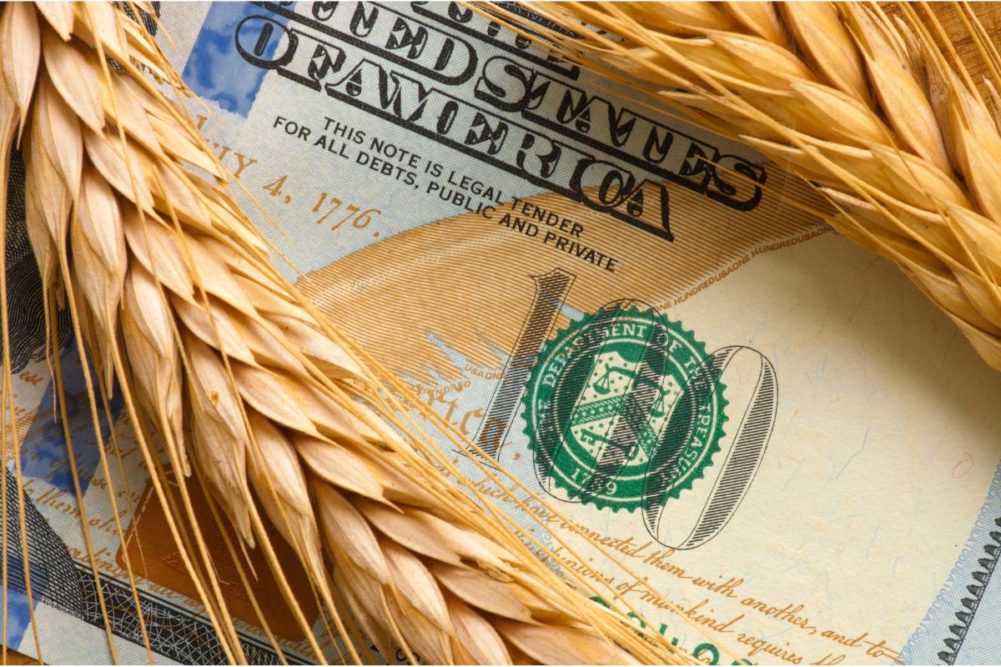WASHINGTON, DC, US — US commodity groups say billions of funding from the US Department of Agriculture (USDA) for international trade and food aid will directly benefit farmers and their customers overseas.
US Wheat Associates (USW) and the National Association of Wheat Growers (NAWG) said they are pleased that US wheat growers now have the opportunity to increase global food assistance and expand export market access under the new $2.3 billion in funding announced by USDA on Oct. 24.
Utilizing funds from the Commodity Credit Corp. (CCC), the USDA will spend $1.3 billion for the Regional Agricultural Promotion Program (RPP) and support for specialty crop industries to diversify export markets. The remaining $1 billion will be used to address global hunger.
US wheat farmers have partnered in food assistance programs for more than 60 years, donating more than 1 million tonnes of wheat annually for the past three years, NAWG and USW said.
“Additional funding for food assistance programs will help address the most urgent humanitarian needs in a generation,” said Brent Cheyne, president of NAWG. “As NAWG works with Congress to reauthorize the farm bill, we continue to advocate for strengthening the in-kind commodity donation program and additional investments in the existing trade promotion programs.”
Supply chain challenges and ongoing conflicts have increased the numbers of people experiencing food insecurity globally, the USDA said. The United States produces more commodities than are consumed and has the opportunity to donate this food to those who are in need.
The USDA will purchase commodities and work with USAID, who is the lead federal agency on international emergency food aid programs, to ensure they reach those most in need around the world.
The new investment in RAPP will allow exporters to break into new markets and increase market share in growth areas. Additionally, providing targeted technical assistance for the specialty crops industry will help it enter and expand markets that impose non-tariff barriers, the USDA said.
RAPP will help address the loss of the Agricultural Trade Promotion program (ATP) that was established five years ago and will expire next year. It helped exporters diversify their markets, according to the USDA.
“Without being on the ground in markets, it is nearly impossible to build the trust and relationships needed to create opportunities,” the USDA said. “The RAPP will address this critical loss and ensure continuity of the relationships key to market development.”
Like the ATP, RAPP funding will supplement the Market Access Program (MAP) and Foreign Market Development (FMD) funds that commodity groups like NAWG, USW and US Grains Council (USGC) rely on to help its members expand markets for grains in all forms, the USDA noted.
The USGC thanked the USDA for the new funding source but said a more permanent solution is needed in the farm bill.
“The success of the Council would not be possible without its partners in both the public and private sector, and we look forward to expanding exports of corn, sorghum, barley and their co-products with this new source of funding, however, there is still a need to increase long-term funding of the MAP and FMD programs in a new farm bill,” said Ryan LeGrand, president and chief executive officer of the USGC.
USW agreed that in the long term, increases for established farm bill export development programs are the best way forward.
Annual funding for MAP has not changed from $200 million since 2006 and FMD funding of $34.5 million has not changed since 20002, USW said. Yet, other countries have significantly increased their export promotion spending.
“Study after study has shown that these programs consistently meet their purpose to boost agricultural export volume and revenue while supporting the entire US economy, and the benefits grow with additional funding,” said Oklahoma wheat farmer Michael Peters, chairman of USW.
The USDA said for every $1 invested in export market development, exports are increased by $24.50.
Ag Secretary Tom Vilsack made the funding announcement as part of the World Food Prize’s Borlaug Dialogue that is held in Des Moines, Iowa, US, each October and brings together world leaders and experts to address global food security issues. The announcement comes on the heels of the 90th anniversary of the CCC, which was incorporated on Oct. 17, 1933, in response to the Great Depression and the Dust Bowl’s devastation on producers and their operations. For 90 years, the CCC has stabilized markets, supported farm income and prices, and enhanced the ability of farmers to market their commodities.





